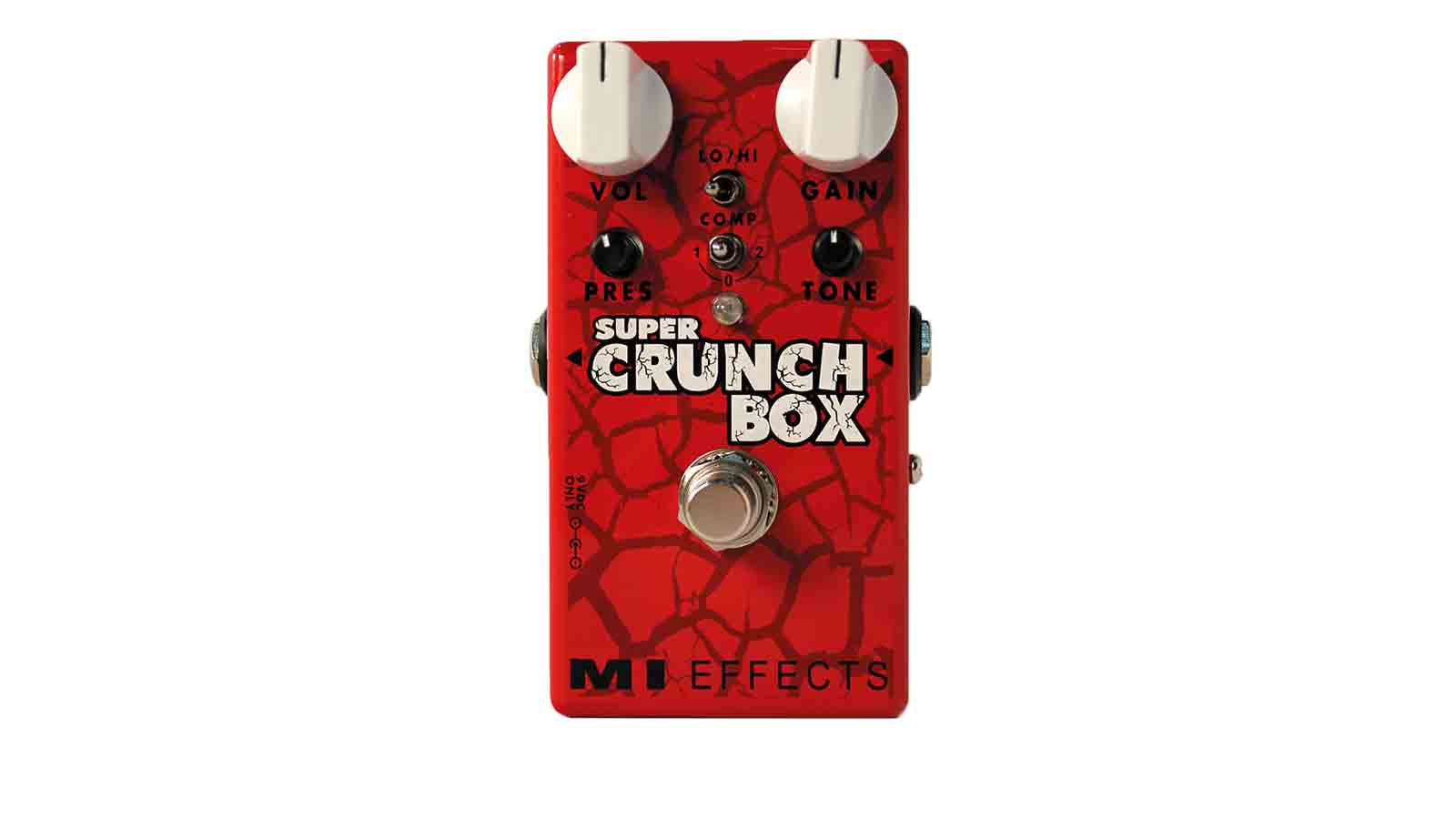MusicRadar Verdict
A British-style dirt pedal that delivers so much more than just distortion, with a punchy, addictive tonality.
Pros
- +
More versatile than the original. Amp-like dynamic response.
Cons
- -
Not much.
MusicRadar's got your back
The original Crunch Box, from Australian pedalheads MI Audio, is one of the fastest-selling boutique pedals of all time, thanks to its raucous British-style distortion and colossal gain.
Consequently, it also became one of the most imitated, with a bevy of Chinese-made, red-enclosured clones currently doing the rounds. MI's new hot-rodded Super Crunch Box wipes the floor with the copycats.
"With silicon clipping selected, the pedal's response becomes more dynamic and Plexi-like"
A pair of dual toggles adds flexibility to the Crunch Box format: Hi/Lo adjusts between high and low gain, while Comp switches between three clipping structures - red LEDs, lower-output silicon diodes and soft clipping - for different responses.
The volume, gain and tone controls return from the original, and the presence is now externally adjustable. Finally, switching is true bypass, while an internal charge pump ups a nine-volt battery or power supply to 18 volts for extra headroom.
Sounds
With high gain and LED clipping selected, the SCB delivers all the thick, chewy JCM-style distortion of its forebear, easily matched to your amp via the presence control.
The surprises come when you switch into lower-gain modes: with silicon clipping selected, the pedal's response becomes more dynamic and Plexi-like, while retaining that characteristic mid punch. From Hendrix to EVH, the SCB has you covered.
If you long for generations of British drive tones at your feet, the Super Crunch Box is worth checking out. Its flexibility and amp-like dynamic response is truly impressive.
Want all the hottest music and gear news, reviews, deals, features and more, direct to your inbox? Sign up here.
Mike is Editor-in-Chief of GuitarWorld.com, in addition to being an offset fiend and recovering pedal addict. He has a master's degree in journalism, and has spent the past decade writing and editing for guitar publications including MusicRadar, Total Guitar and Guitarist, as well as a decade-and-a-half performing in bands of variable genre (and quality). In his free time, you'll find him making progressive instrumental rock under the nom de plume Maebe.

